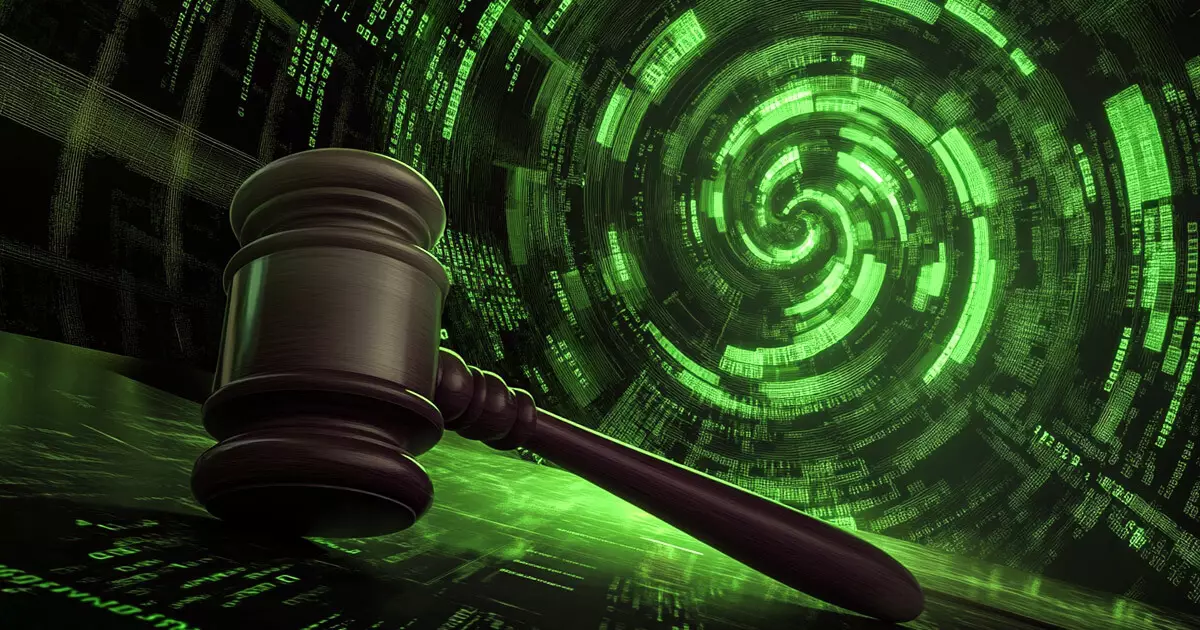On September 26, 2023, the legal landscape of cryptocurrency took a significant turn when Judge Katherine Polk Failla, presiding over a case in the Southern District of New York, ruled that software code associated with cryptocurrency protocols, such as Tornado Cash, does not enjoy First Amendment protections. This decision marks a pivotal moment in the ongoing debate surrounding how code and its deployment are viewed under U.S. law. Traditionally, the First Amendment has been interpreted to protect free speech, including expressive activities, leading to the argument that writing and disseminating software code is akin to exercising free speech. However, Judge Failla’s ruling suggests that when software is used for functional purposes, such as managing monetary transactions, this activity may fall outside the protections typically afforded to expressive speech.
The ruling is particularly consequential for Roman Storm, a developer of Tornado Cash, who faces a variety of charges including money laundering and operating an unlicensed money-transmitting business. With Storm’s trial set for December 2, 2023, this ruling underlines a new legal framework in which cryptocurrency protocols might be classified as money transmitters, irrespective of whether the developers possess control over the funds being transmitted. This reclassification could potentially expose numerous cryptocurrency developers and businesses to rigorous regulatory scrutiny and legal challenges.
By stating that expressiveness in code does not encompass its functional use, the judge has drawn a line that could redefine how developers approach the creation and management of software solutions in volatile and quickly evolving spaces like cryptocurrency. Such interpretations may deter innovation; developers could hesitate to create new platforms if they fear legal repercussions for operational aspects of their protocols.
The ruling has generated substantial backlash within the cryptocurrency community, with many industry advocates expressing concern over the decision’s far-reaching ramifications. Amanda Tuminelli, Chief Legal Officer at the DeFi Education Fund, voiced her disappointment, highlighting an expansion of liability that could lead to severe implications for software developers across various sectors. Tuminelli’s assertion underscores a broader worry: that this legal precedent could chill the development of innovative solutions that rely on open-source software and decentralized technologies.
Jake Chervinsky, another prominent legal figure within the cryptocurrency realm, criticized the court’s decision as a dangerous precedent that threatens the very essence of software development. Chervinsky contended that the ruling represents an “assault on the freedom of software developers everywhere,” further warning that this legal rationale may influence jurisdictions beyond the immediate case, potentially leading to a cascade of legal challenges for developers who work on similar technologies.
As the cryptocurrency industry matures, regulators face increasing pressure to adapt existing financial laws to accommodate these disruptive technologies. This case exemplifies the tension between innovation in technology and the regulatory frameworks attempting to govern them. The question arising from the ruling is whether the law can adequately address the complexities of blockchain technology and whether developers should be held accountable for the misuse of the tools they create.
With appeals on the horizon, the outcome of Roman Storm’s trial will likely yield further legal fortifications or clarifications around the rights of software developers, setting a precedent that could affect numerous cases involving cryptocurrency protocols subjected to similar scrutiny. The court’s decision may be perceived not only as a singular ruling but as a bellwether for future interactions between the legal system and digital currencies.
The ruling by Judge Failla signifies a notable departure from norms traditionally applied to the concept of free speech, especially within the domain of software development. As the case proceeds, it will undoubtedly serve as a touchstone for dialogues around regulation, liability, and the principles guiding the intersection of technology and law. The implications extend beyond the immediate defendants, shaping the future landscape of cryptocurrency development and possibly deterring innovative endeavors in an industry already burdened by complexities and uncertainties. Thus, the cryptocurrency sector finds itself at a crucial juncture: balancing the innovative drive of decentralized technologies with a new legal reality that could well dictate their evolution.














